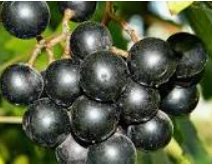
11-12R2: I can determine two or more themes or central ideas in a text and analyze their development, including how they emerge and are shaped and refined by specific details
11-12R4 I can determine the meaning of words and phrases as they are used in a text, including figurative and connotative meanings. Analyze the impact of specific word choices on meaning, tone, and mood.
11-12W2c: I can precise language, content-specific vocabulary and literary techniques to express the appropriate complexity of a topic.
11-12W2d: I can use appropriate and varied transitions and syntax to make insightful connections and distinctions, create cohesion, and clarify relationships among complex ideas and concepts
Essential question: How do figurative language devices-imagery, personification and apostrophe- contribute to a poem?
George Marion McClellan (1860-1934) was a minister, teacher, fiction writer, and distinguished African American poet. He is best known for his two poetry collections, Songs of a Southerner and The Path of Dreams. In this poem, the speaker describes a September night in Anguilla, Mississippi
Share with!!! dorothy.parker@rcsdk12.org
Vocabulary
rankish- growing excessively or out of control
begirt-surrounded by; encompassing*
Anguilla-a town in Mississippi
dapple- marked with rounded spots of color
muscadine-a grapevine species native to the South
katydids-an insect, also called a bush cricket, known for its loud
bayou-(noun) in the souther US a marshy outlet of a lake or river
(see picture above.)
Directions: We will read the poem three times as a class
Note the sound of the words
Note the varied imagery: (seeing (visual)
hearing (auditory)
smelling (olfactory)
tasting (gustatory)
feeling (sensory)
(Be prepared to identify the types of imagery.)
Copy and paste the poem and the questions onto a google doc. MAKE SURE THAT YOU GIVE ME EDITING RIGHTS!!!!!
1. Answer the five questions, highlighting the correct response
2. Respond to the use of personification within the poem, listed as number 6.
(personification is defined as a literary device that assigns human qualities and attributes to objects or other non-human things.) Parts 1 and 2 will count as a class participation grade.)
Due by 3 pm on Tuesday, November 2
September Night by George Marion McClellan
(1)The full September moon sheds floods of light,
And all the bayou’s face is gemmed with stars,
Save where are dropped fantastic shadows down
From sycamores and moss-hung cypress trees.
(5)With slumberous sound the waters half asleep
Creep on and on their way, ’twixt rankish .reeds,
Through marsh and lowlands stretching to the Gulf.
Begirt with cotton fields, Anguilla sits
Half bird-like, dreaming on her Summer nest.
(10) Amid her spreading figs and roses, still
In bloom with all their Spring and Summer hues,
Pomegranates hang with dapple cheeks full ripe,
And over all the town a dreamy haze
Drops down. The great plantations, stretching far
(15)Away, are plains of cotton, downy white.
O, glorious is this night of joyous sounds;
Too full for sleep. Aromas wild and sweet,
From muscadine, late blooming jessamine,
And roses, all the heavy air suffuse.
(20) Faint bellows from the alligators come
From swamps afar, where sluggish lagoons give
To them a peaceful home. The katydids
Make ceaseless cries. Ten thousand insects’ wings
Stir in the moonlight haze and joyous shouts
(25)Of Negro song and mirth awake hard by
The cabin dance. O, glorious is this night!
The Summer sweetness fills my heart with songs,
I can not sing, with loves I can not speak.
Questions:
1.The setting of this poem is
A. Moonlit river
B. Vibrant rainforest
C. Calm, sleepy bayou
D. Wild Jungle
2. Part A
What does the speaker’s description of the setting reveal about Anguilla?
A. The speaker describes Anguilla as only superficially beautiful, overlooking its history of cotton plantations.
B. The speaker describes Anguilla as infested with various forms of wildlife, suggesting that it is difficult to live there.
C. The speaker describes Anguilla as a drowsy, listless bayou, suggesting it is a dull town.
D. The speaker describes the sounds, sights, and wildlife of Anguilla, showing its abundance of overwhelming beauty.
3 PART B: Which piece of evidence from the poem best supports your response to Part A?
A.“With slumberous sound the waters half asleep / Creep on and on their way, ’twixt rankish reeds, / Through marsh and lowlands stretching to the Gulf.” ( Lines 5-7)
B.“The great plantations, stretching far / Away, are plains of cotton, downy white” ( Lines 14-15)
C.“O, glorious is this night of joyous sounds; / Too full for sleep. Aromas wild and sweet, / From muscadine, late blooming jessamine, / And roses, all the heavy air suffuse.” ( Lines 16-19)
D.“Faint bellows from the alligators come / From swamps afar” ( Lines 20-21)
4.
As used in line 21, what does the word “sluggish” mean?
A. disturbed
B. indifferent
C. drowsy
D. slimy
5.
What do lines 27-28 reveal about the speaker’s point of view?
A.The speaker feels excluded from the natural beauty of the bayou.
B.The speaker is speechless in awe of the bayou.
C.The speaker does not feel worthy of the bayou.
D.The speaker is not allowed to sing or speak about the bayou.
6.
In no fewer than 100 words, explain how the poem uses personification to describe the bayou in Anguilla. What effect does personification have on the meaning of the poem? Cite evidence from the text in your answer.
***********************************
*7. challenge bonus, worth 100 points: An apostrophe is a literary device (different from the grammatical one) that refers to a speech or address to a person who is not present or to a personified object. Identify the apostrophe within September Night.










No comments:
Post a Comment